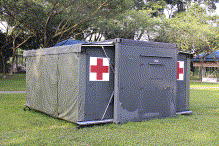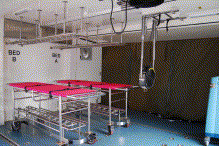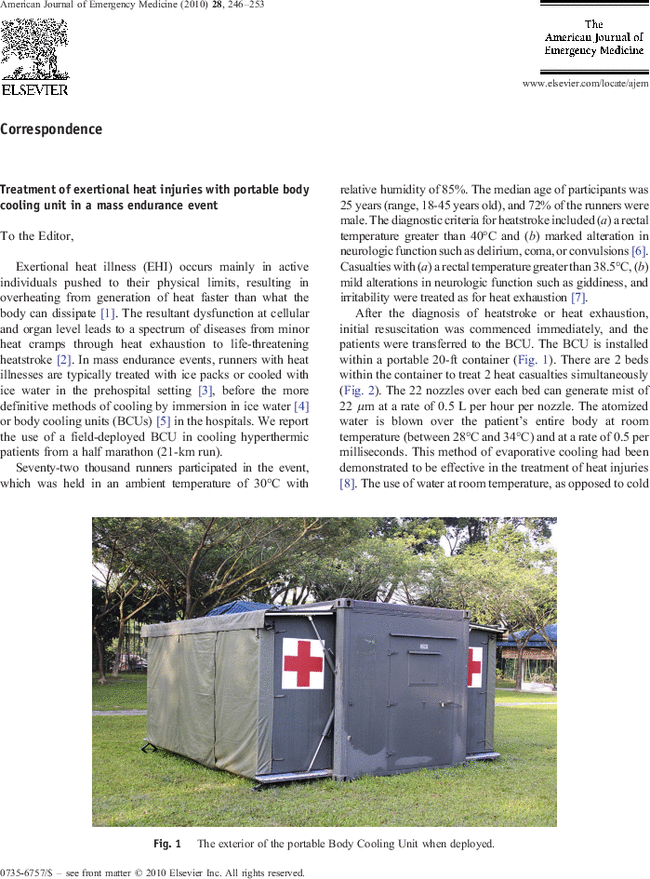Treatment of exertional heat injuries with portable body cooling unit in a mass endurance event
,
Mong Rupeng, MBBS
, Vernon J. Lee, MBBS, MPH, MBA
, Wei-Chong Chua, MBBS
, Benjamin Seet, MBBS, M Med(Surg)
SAF Medical Corps, Singapore
To view the full text, please login as a subscribed user or purchase a subscription. Click here to view the full text on ScienceDirect.

Fig. 1
The exterior of the portable Body Cooling Unit when deployed.

Fig. 2
The 2 trolleys inside the BCU allow two patients to be treated simultaneously.

To access this article, please choose from the options below
Purchase access to this article
Claim Access
If you are a current subscriber with Society Membership or an Account Number, claim your access now.
Subscribe to this title
Purchase a subscription to gain access to this and all other articles in this journal.
Institutional Access
Visit ScienceDirect to see if you have access via your institution.
© 2010 Elsevier Inc. Published by Elsevier Inc. All rights reserved.
Access this article on
Visit ScienceDirect to see if you have access via your institution.
Related Articles
Searching for related articles..


